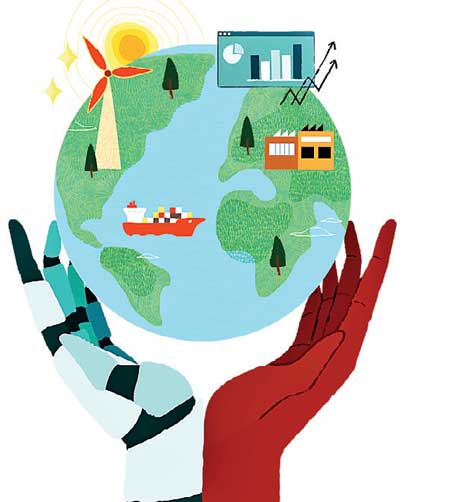Wednesday Feb 25, 2026
Wednesday Feb 25, 2026
Tuesday, 3 May 2022 00:37 - - {{hitsCtrl.values.hits}}
People around the world are demanding more progress on sustainability and social efforts and are looking to businesses to step up, according to a new study by Oracle and Pamela Rucker, CIO Advisor, and Instructor for Harvard Professional Development. The “No Planet B” study of more than 11,000 consumers and business leaders across 15 countries found that people are fed up with the lack of progress society is making towards sustainability and social initiatives, want businesses to turn talk into action, and believe technology can help businesses succeed where people have failed.

People from Asia-Pacific and Japan (JAPAC) want businesses to step up sustainability and social efforts
The events of the past two years have put a spotlight on sustainability and social efforts, with people worldwide disappointed with the lack of progress and calling for businesses to step up. Below are some key findings from the JAPAC region.
“The events of the past two years have put sustainability and social initiatives under the microscope and people are demanding material change. While there are challenges to tackling these issues, businesses have an immense opportunity to change the world for the better,” said Harvard Professional Development CIO Advisor and Instructor Pamela Rucker. “The results show that people are more likely to do business with and work for organisations that act responsibly toward our society and the environment. This is an opportune moment. While thinking has evolved, technology has as well, and it can play a key role in overcoming many of the obstacles that have held progress back.”
“It’s never been more critical for businesses to invest in sustainability and ESG initiatives, as people don’t just want to hear about it – they’re looking for decisive action and are demanding more transparency and tangible results,” said Juergen Lindner, senior vice president and CMO, Global Marketing SaaS, Oracle. “Business leaders understand the importance, yet often have the erroneous assumption that they need to prioritise either profits or sustainability. The truth is this is not a zero-sum game. The technology that can eliminate all the obstacles to ESG efforts is now available, and organisations that get this right can not only support their communities and the environment, but also realise significant revenue gains, cost savings, and other benefits that impact the bottom line.”
“Given Asia Pacific’s large share of the global population and emissions, climate vulnerabilities, and technological and financial strengths, the global fight against climate change will be won or lost in Asia Pacific. It’s imperative that we take action on climate change and businesses have a narrowing window to lead the way,” said Will Symons, Asia Pacific Sustainability and Climate Lead, Deloitte. “It is great to see organisations like Oracle helping businesses to step up and prioritise sustainability. The study results show people want businesses to prioritise progress on sustainability and are willing to reward those who lead. To do this organisations must re-think how they use technology to shift from ambition to action on sustainability commitments while ensuring transparency and accountability to all stakeholders.”
Read the full press release www.oracle.com/noplanetb.
Methodology
Research findings are based on a survey conducted by Savanta, Inc. between 25 February to 14 March 2022 with 11,005 global respondents from 15 countries (United States, United Kingdom, Germany, the Netherlands, France, China, India, Australia, Japan, Singapore, South Africa, United Arab Emirates, Saudi Arabia, Brazil, and Mexico). 4,000 respondents were included from JAPAC region. The survey explored attitudes and behaviours of consumers and business leaders towards sustainability and social efforts along with the role and expectations of artificial intelligence (AI) and robots in environmental, societal, and governance (ESG) efforts.